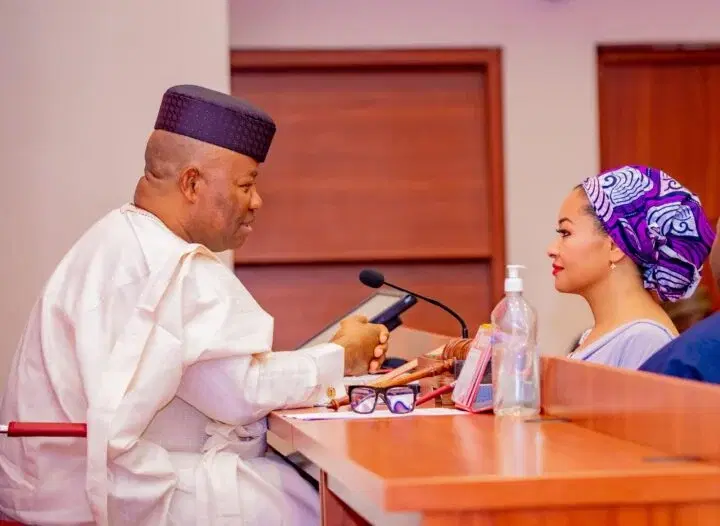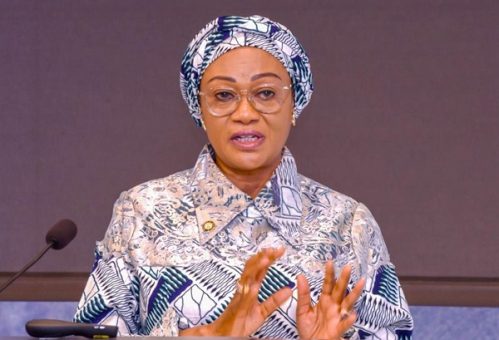The ongoing political drama between Senator Natasha Akpoti-Uduaghan (PDP, Kogi Central) and Senate President Godswill Akpabio has taken a bold turn, with the suspended senator issuing a sarcastic and biting "apology" to Akpabio, reigniting conversations about sexism and power struggles within Nigeria’s legislative chambers.
In a letter dripping with irony, Akpoti-Uduaghan mockingly apologized for what she termed the “grievous crime” of maintaining dignity and self-respect in Akpabio’s presence. She mockingly referenced the expectation of compliance, stating: “How remiss of me not to understand that my refusal to indulge your… ‘requests’ was not merely a personal choice but a constitutional violation of certain men’s entitlement.”
The letter, filled with sharp satirical remarks, continued by pointing out the systemic sexism at play. “Please find it in your magnanimous heart — somewhere buried deep beneath layers of entitlement — to forgive this stubborn woman who mistakenly believed that her seat in the Senate was earned through elections, not erections,” she wrote.
The escalating tensions between Akpoti-Uduaghan and Akpabio have been brewing since July 2024, when Akpabio publicly rebuked her for attempting to speak without official recognition during a plenary session, infamously remarking, “We are not in a nightclub.” His comment was widely condemned as sexist, and although he later claimed no harm was intended, the situation only worsened.
In February 2025, Akpoti-Uduaghan formally accused Akpabio of sexual harassment, citing inappropriate comments and advances. However, her petition was dismissed on procedural grounds, and she was subsequently suspended for six months by the Senate — a move many Nigerians saw as retaliation and an attempt to silence her. This sparked widespread protests under the banner of “We are all Natasha,” as women’s rights groups and activists rallied in support of her.
While groups like the Kogi Patriotic Consultative Assembly urged her to apologize and move on, many Nigerians celebrated her defiant stance, viewing her as a powerful symbol of resistance against systemic gender-based discrimination in Nigerian politics.
Akpabio, for his part, has denied the allegations, labeling Akpoti-Uduaghan’s claims as “baseless” and “malicious,” threatening legal action for defamation. As the controversy unfolds, Akpoti-Uduaghan’s bold letter has solidified her status as a fearless and unapologetic voice challenging the entrenched power dynamics in Nigerian politics.




